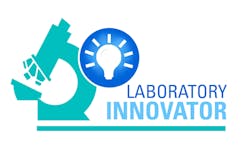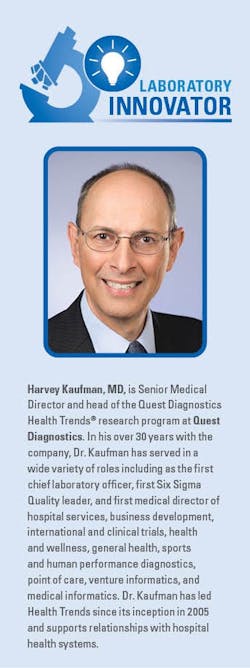You have led Quest Diagnostics Health Trends since its inception. How do you choose the topics to highlight in these reports?
Quest Diagnostics Health Trends topics are selected with expectations that reports may reveal important new novel public health insights. We collaborate with national academic experts and leaders in public health on many of our studies. To find impactful findings, this external input helps shape the objectives and study designs. Many of our studies have been highlighted by premier news outlets, nationally and regionally, and have been integrated into professional guidelines. In 2022, the prestigious New York City Chapter of the Public Relations Society of America awarded Health Trends with numerous Big Apple awards including a Best of Best award.
Quest Diagnostics latest report is on the country’s drug epidemic and the rise in novel psychoactive substances (NPS). Would you elaborate on what NPSs are and what is most concerning about them?
Novel psychoactive substances (NPS) are synthetic or “designer” versions of established drugs, including opioids, benzodiazepines, cannabis, and cocaine. They are chemically altered by design to enhance drug effects and elude tracking by law enforcement and, as such, may evade detection by current laboratory test methods. Further, their chemical composition frequently evolves making it a game of cat and mouse to detect. Of grave clinical concern, little is known about their immediate or long-term health effects or true prevalence in communities.
The CDC’s June 2023 Morbidity and Mortality Weekly Report (MMWR) and Quest Diagnostics Health Trends report introduced many of us to a rise in mixing fentanyl with the animal tranquilizer xylazine. Why do you think this drug is becoming more prevalent?
Xylazine is a non-opiate sedative, analgesic, and muscle relaxant only authorized in the United States for veterinary use according to the U.S. Food and Drug Administration. Xylazine is associated with psychoactive effects that for many drug users creates a longer high and has longer-lasting effects than fentanyl alone. Conversely, some drug users try to avoid drug combinations and some state it reduces the euphoric experience of other drugs. Unfortunately, most drug users are unaware of what they are using. For manufacturers, the advantage is the extremely low cost of xylazine and the impact of its additive properties.
What effects do we know that xylazine has on people?
Human studies on the effects of xylazine have not been conducted so reports from users remain the primary source of information. Effects include drowsiness, hypotension, respiratory depression, soft tissue injuries that can result in amputations, and coma. For patients in the emergency room, the failure of clinical laboratories to identify xylazine can provide an incomplete picture to their treating physicians. Xylazine has no approved antidote for human use, and as xylazine is not an opioid, naloxone does not reverse its effects. Fortunately, naloxone administration can still address the effect of an opioid on breathing which may be sufficient to reduce risk of overdose deaths.
What suggestions could you provide to the healthcare community on helping to combat our country’s drug epidemic?
Our research suggests providers and policy makers will need to adopt more creative solutions to contend with a drug crisis growing increasingly complicated by NPS. Because NPSs change so frequently, clinical laboratories need to continuously reevaluate their test solutions to keep track of them. As an example, our 88-compound NPS test panel is periodically reviewed and updated. This is to ensure the Quest Diagnostics team of toxicologists, medical experts, and data analysts include the most relevant and prevalent substances present in our communities, as reflected by trends in the company’s nationally representative dataset and the latest reports from public health, academic research, and law enforcement organizations.
What else do you do at Quest Diagnostics?
I work closely with many of the hospitals that Quest Diagnostics has established special relationships in New York and New Jersey such as Hackensack Meridian Health, Inspira, Montefiore Nyack, and New York Presbyterian. Solving problems, identifying and building innovative solutions, and serving the needs of patients is an ongoing rewarding opportunity. I also support the Quest Diagnostics collaboration with the Centers for Disease Control and Prevention and efforts in regard to advancing testing for chronic kidney disease and end-stage renal disease. And I am inspired by my amazingly dedicated and talented colleagues who work daily to create a healthier world, one life at a time. Innovation is constant when we look.






